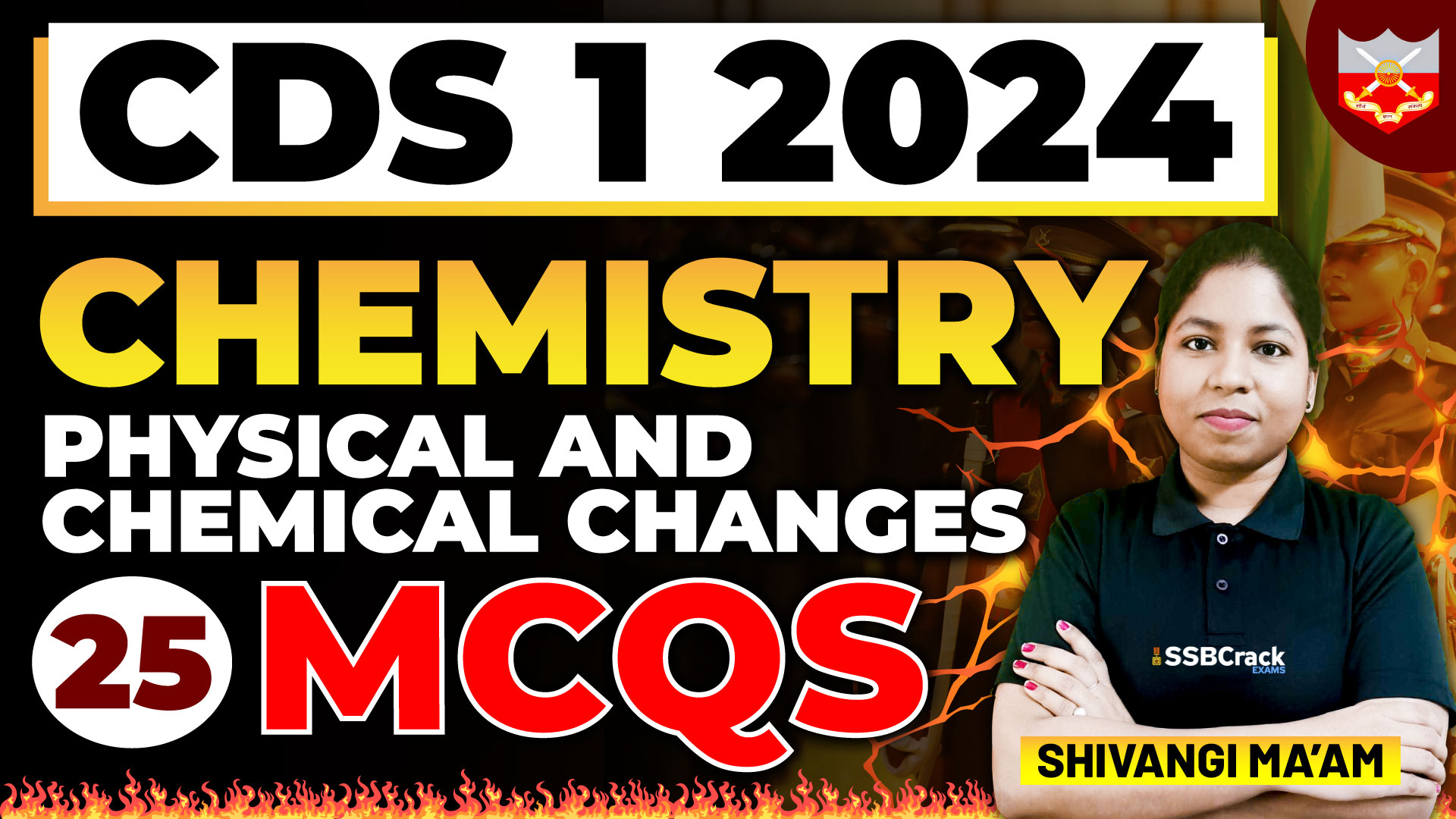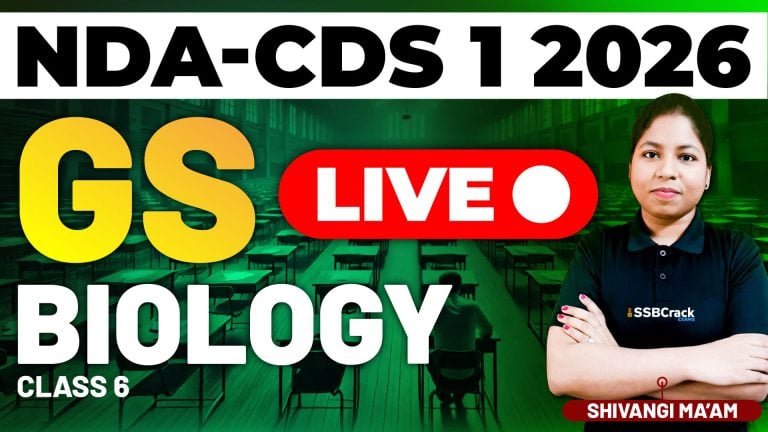The Combined Defence Services (CDS) examination serves as a pivotal gateway for individuals aspiring to join the prestigious Indian Armed Forces. Among its various sections, the Chemistry paper holds significant importance, particularly in comprehending fundamental concepts like physical and chemical changes. In the CDS 1 2024 examination, the inclusion of Multiple-Choice Questions (MCQs) regarding physical and chemical changes underscores their pivotal role in assessing candidates’ understanding of these fundamental principles.
Understanding Physical and Chemical Changes: Physical and chemical changes represent foundational concepts in chemistry, delineating alterations in matter at both atomic and macroscopic levels. Physical changes involve modifications in the state or appearance of matter without altering its chemical composition, such as melting, freezing, or condensation. On the other hand, chemical changes encompass transformations wherein substances undergo chemical reactions to form new compounds, exhibiting alterations in chemical composition and properties.
Importance of MCQs:
- Conceptual Clarity: MCQs effectively gauge candidates’ conceptual clarity regarding physical and chemical changes. By presenting diverse scenarios and options, these questions prompt individuals to apply theoretical knowledge to practical situations, fostering a deeper understanding of underlying principles.
- Application of Knowledge: MCQs on physical and chemical changes necessitate the application of theoretical concepts to real-world scenarios. Candidates must discern between physical and chemical alterations, elucidating the factors influencing each process. This application-oriented approach not only enhances problem-solving skills but also cultivates critical thinking abilities essential for military personnel.
- Efficient Evaluation: MCQs offer a streamlined mechanism for evaluating candidates’ comprehension of physical and chemical changes. With a wide array of questions spanning various difficulty levels, MCQs enable comprehensive assessment within a limited timeframe, facilitating efficient evaluation of candidates’ knowledge and aptitude.
- Remedial Feedback: Through MCQ-based assessments, candidates receive immediate feedback regarding their performance. Analyzing incorrect responses enables individuals to identify conceptual gaps and rectify misconceptions, thereby facilitating targeted remediation and enhancing overall learning outcomes.
- Standardized Assessment: MCQs ensure standardized assessment, fostering impartial evaluation across diverse cohorts of candidates. By adhering to predetermined criteria and objective scoring mechanisms, these questions mitigate potential biases and discrepancies, ensuring equitable evaluation irrespective of candidates’ backgrounds or circumstances.
Conclusion: The incorporation of MCQs on physical and chemical changes in the CDS 1 2024 Chemistry paper underscores their pivotal role in assessing candidates’ comprehension of fundamental principles. By fostering conceptual clarity, application of knowledge, and efficient evaluation, MCQs facilitate holistic understanding and preparation for the examination. Through strategic preparation and diligent practice, aspiring candidates can enhance their proficiency in tackling MCQ-based assessments, thereby augmenting their prospects of success in the CDS examination and beyond.
Physical And Chemical Changes MCQs
- The Process of Burning of a Candle Involves
A. only physical reactions
B. only chemical reactions
C. both physical and chemical reactions
D. More than one of the above
ANSWER: C - Which Of the Following Is an Exothermic Process?
A. Reaction of water with quick lime
B. Sublimation of Camphor
C. Evaporation of water
D. More than one of the above
ANSWER: A - Chemical Name of Washing Soda Is:
A. Sodium chloride
B. Sodium hydrogen carbonate
C. Sodium carbonate
D. Sodium hydroxide
ANSWER: C - How Many Water Molecules Are Present In One Molecule Of Washing Soda?
A. 8
B. 5
C. 7
D. 10
ANSWER: D - What Is the Common Name Of Mercury Sulphide?
A. Marsh Gas
B. Mohr’s Salt
C. Potash Alum
D. Vermilion
ANSWER: D
For More MCQs On This Topic Refer To the video & Attached PDF







